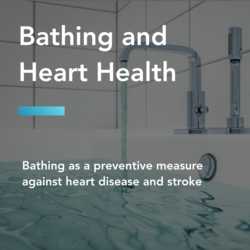
Lipoprotein(a), similar to LDL Cholesterol, is a protein-lipid complex that transports fats around your blood stream. It is a known genetic risk factor for heart disease, but researchers and drug companies have not focused on treating it or lowering it.
While doctors routinely measure it in blood tests, it has been assumed to play "second string" to LDL cholesterol. Most efforts in preventing heart disease have focused on reducing bad cholesterol (LDL) and increasing good cholesterol (HDL).
Lipoprotein(a) and Heart Disease Risk
A new meta-analysis, analyzing data from seven clinical trials that studied statins and cholesterol, has shown that Lipoprotein(a) is a significant player in heart disease, independent of cholesterol.

Among nearly 30,000 patients, researchers found that your level of Lipoprotein(a) predicted your risk of heart disease, similar to LDL Cholesterol. Patients in the highest category, with more than 50 mg/dL of Lipoprotein(a) in their blood, had a nearly 30% increase in their risk of heart disease.
The risk also appears to be "dose dependent," where the more Lipoprotein(a) you have in your blood, the higher your risk of heart disease.
Based on this data, we can't know for sure that lowering it will reduce your risk since this is just a correlation, but this is strong evidence that we need to start paying attention.
The Effect of Statins and Lipoprotein(a)

Surprisingly, lipoprotein(a) appears to be completely resistant to statins, the most common treatment for lower your cholesterol. Patients in the trials on average saw a 39% drop in LDL cholesterol when they were treated with a statin.
However, their Lipoprotein(a) didn't budge one bit, on average it fell by less than half a percent after therapy.
What does this mean?
These results suggest that there are a lot of people today with elevated heart disease risk, and they may not know it. Many individuals may be treating their high cholesterol with a statin, but they remain at risk with a high Lipoprotein(a) level.
Currently, there are no therapies designed to target Lipoprotein(a), but we do expect that this will be a hot field of research in the next few years.
What can you do?

The best thing to do is to keep going seeing your doctor regularly. Experts recommend that healthy adults should have their blood tested for lipids, including cholesterol and Lipoprotein(a) every 4-6 years.
For now, if you do find yourself in the highest category, there is some evidence that taking vitamin B3, or Niacin, can help.
But, the best treatment of all remains diet and exercise. Lifestyle changes, if done correctly, can dramatically lower your risk of heart disease without the side effects of medication.









































